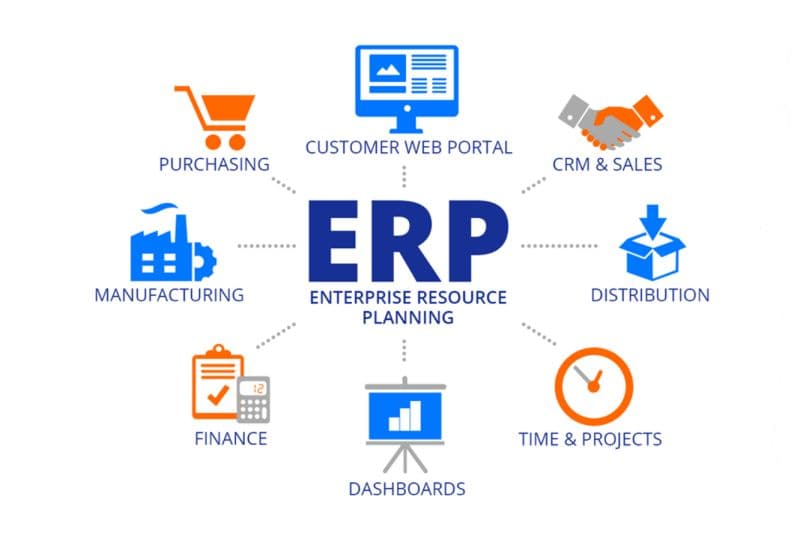The enterprise resource planning, or ERP, ecosystem doesn’t make headlines as often as trendier topics like generative AI (GenAI) or cybersecurity. But we know this area well, as helping enterprises manage and optimize their SAP environments is one of our core competencies, and we want to share our predictions for how we think the ERP landscape will evolve in 2024.
1. ERP investments emphasize efficiency.
Since ERP systems are at the core of business operations, their effectiveness plays a key role in determining the effectiveness of the organization as a whole. Unfortunately, however, many ERP systems are not as effective as they could be. They often rely too heavily on manual processes or make it difficult for decision makers to analyze all available data.
In 2024, we expect more organizations to address this challenge by investing in solutions that improve ERP efficiency. In particular, we predict strategies such as increased adoption of cloud ERP, which help scale ERP systems while minimizing dependence on physical on-premises infrastructure.
In addition, we expect that more organizations will take advantage of the integration of AI/ML into ERP systems, which in turn will lead to increased levels of automation, more accurate forecasting and increased ability to analyze all relevant data in real time for decision making or process management.
2. Accelerating automation of ERP systems
We also believe that in the new year, the ERP ecosystem, especially cloud, will see strong adoption of automation across various industry verticals.
We expect a number of large enterprises to begin implementing various variants of GenAI, AIOps and similar solutions to automate new activities in various areas of the business – from supply chain logistics and procurement to customer dashboards and even integration with HR and legal departments. As a result, there will be a redefinition of operational capabilities and a significant amount of training and reskilling will be required to help teams best take advantage of next-generation ERP automation technologies.
3. Improving the security of ERP systems
Security is another area where ERP systems often fall short, which is understandable given the complexity of ERP platforms and the fact that many of them were developed long before the advent of modern security threats. However, as companies look to improve security and privacy across the board, finding ways to strengthen ERP security will be a key focus in 2024.
Organizations will achieve this goal, for example, by integrating AI-based security protocols into ERP systems to improve real-time threat detection and enable rapid, automated incident response.
We also expect more ERP systems to move to the cloud, in part due to a desire to take advantage of modern security tools, such as identity and access management (IAM) systems, that are available in cloud environments and help prevent unauthorized access and protect privacy and data integrity.
4. Full application of GenAI in ERP
Generative AI, which appeared on most companies’ radars with the release of ChatGPT in late 2022, is now moving from experimental technology to the foundation of enterprise-ready products.
In the ERP space, we expect more companies to use GenAI-powered solutions in 2024 to achieve goals such as simplifying data interactions, which is likely to be particularly useful in the manufacturing and logistics sectors. GenAI will also be one of the technologies driving greater automation and efficiency in ERP by allowing businesses to implement data-driven automated systems without the need for explicit programming.
5. Composite ERP is gaining momentum
The concept of composite ERP, which involves breaking up monolithic ERP systems into multiple products or services, has been discussed in the industry for several years. However, we expect that 2024th will be the year when a critical mass of organizations adopting a composite ERP strategy is reached. The desire to increase cost efficiency and gain access to a wider range of tools and functions will force more organizations to use solutions from multiple ERP vendors or services.
This, in turn, means that ERP solution providers will have to become more adaptable, ensuring their offerings are compatible with composite ERP architectures.
Conclusion
In short, the 2024 ERP landscape will see increased efficiency and automation, improved security, greater adoption of GenAI-based solutions, and a shift to composite ERP strategies. None of these changes will fundamentally change the role of ERP in modern business, but they will increase the value of ERP solutions, helping organizations get more value from ERP with less cost and effort.
At the same time, these ERP trends can lead to increased complexity in ERP systems, making it even more important to have a consistent ERP modernization and optimization strategy.





